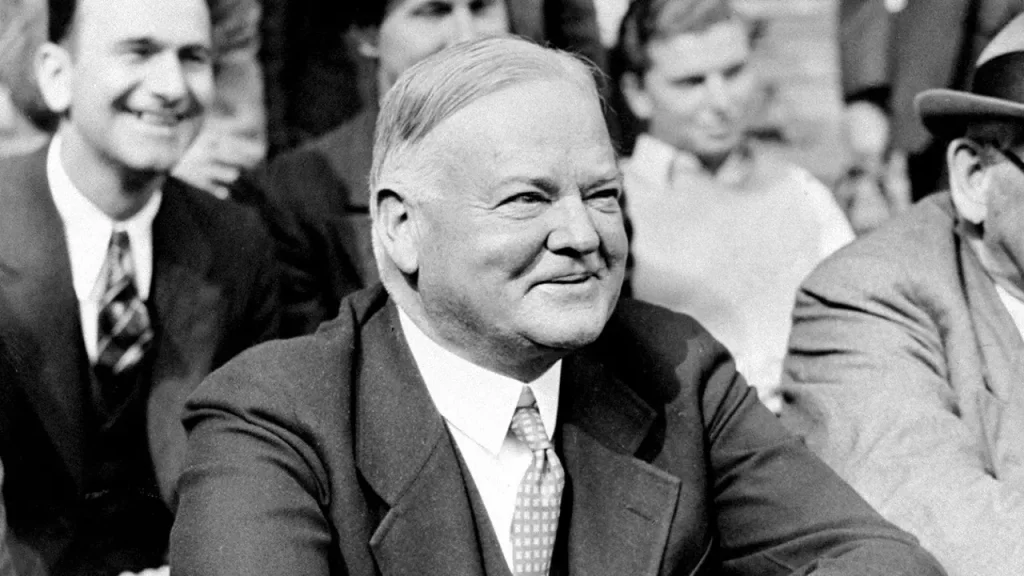On October 22, 1928, Republican presidential nominee Herbert Hoover spoke of the “American system of rugged individualism” in a speech at Madison Square Garden in New York. This speech coined the term “rugged individualism” and amplified Hoover’s philosophy of personal freedom and volunteerism over government intervention. Hoover, the 31st president of the United States, was born in Iowa in 1874 and grew up in Oregon. He advocated that rugged individualism would bring prosperity to Americans and further supported traditional American constitutional principles of limited government working cooperatively with private businesses and individuals for progress.
During his 1928 New York City speech, Hoover proclaimed that the American system was responsive enough to solve problems without abandoning its values and traditions. He believed that the key to economic success was full employment and that every family would benefit from the nation’s prosperity if every man had a job. Hoover also credited Republican policies for the economic prosperity of the 1920s while blaming the effects of the Great War for lingering problems in various industries. He won the presidency in 1928, defeating Alfred Smith with 83.6% of the electoral college and 58.2% of the popular vote.
When Hoover assumed the presidency in 1929, the stock market was reaching unprecedented levels with investors buying stocks on credit, leading to the stock market crash in October 1929. Despite Hoover’s proactive interventions, the American economy continued to spiral downward, eventually leading to the Great Depression from 1929 to 1941. After his presidency, Hoover dedicated his time to public service and social causes, such as the Boys Clubs of America and the Hoover Institution, a research center he established at Stanford University in 1919. He also wrote over 40 books during this time.
The Great Depression was the longest and deepest downturn in US history, beginning in 1929 and lasting until 1941. Democrat Franklin D. Roosevelt defeated Hoover in the 1932 election, marking a dramatic shift in the country’s political alignment. After his presidency, Hoover continued to engage in public service and philanthropic endeavors, passing away on October 20, 1964, at the age of 90. He was laid to rest in Iowa, his birthplace. Hoover’s legacy as president and public figure continues to be remembered for his philosophy of rugged individualism and his efforts to navigate the challenges of the Great Depression.


